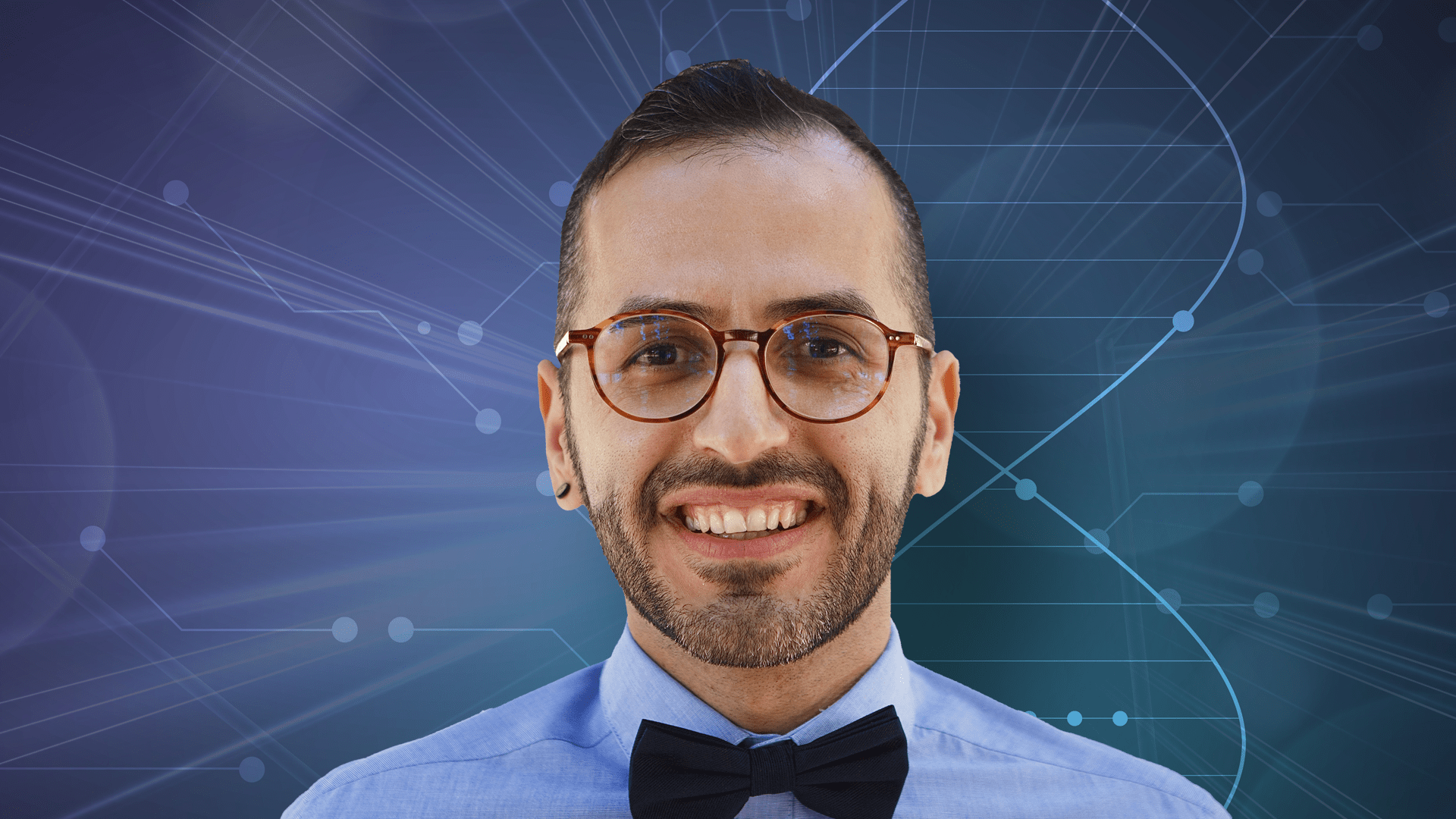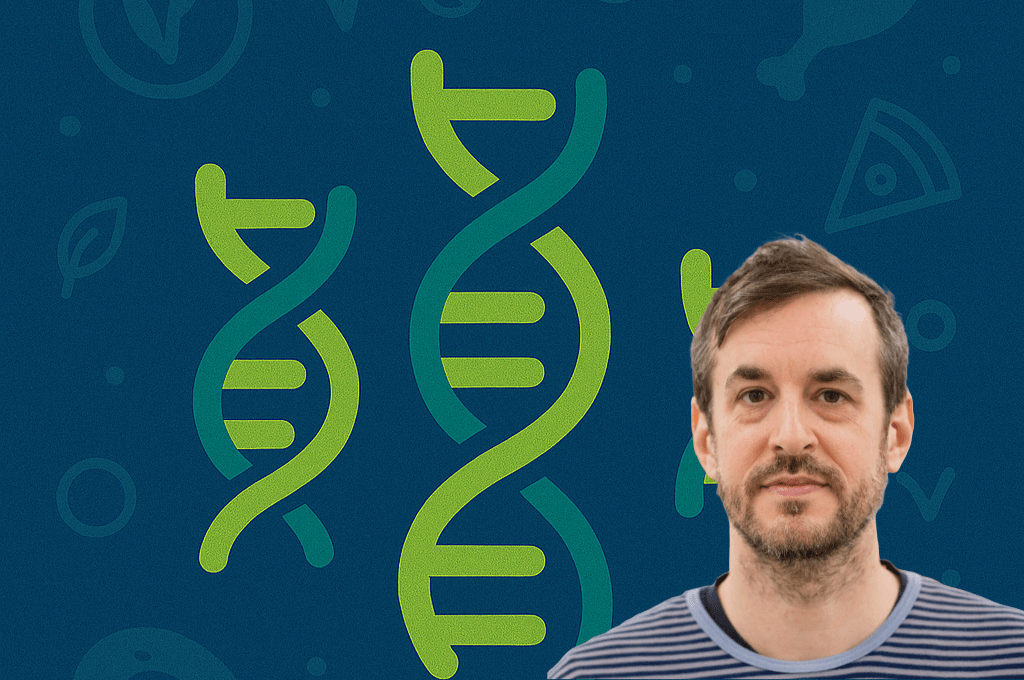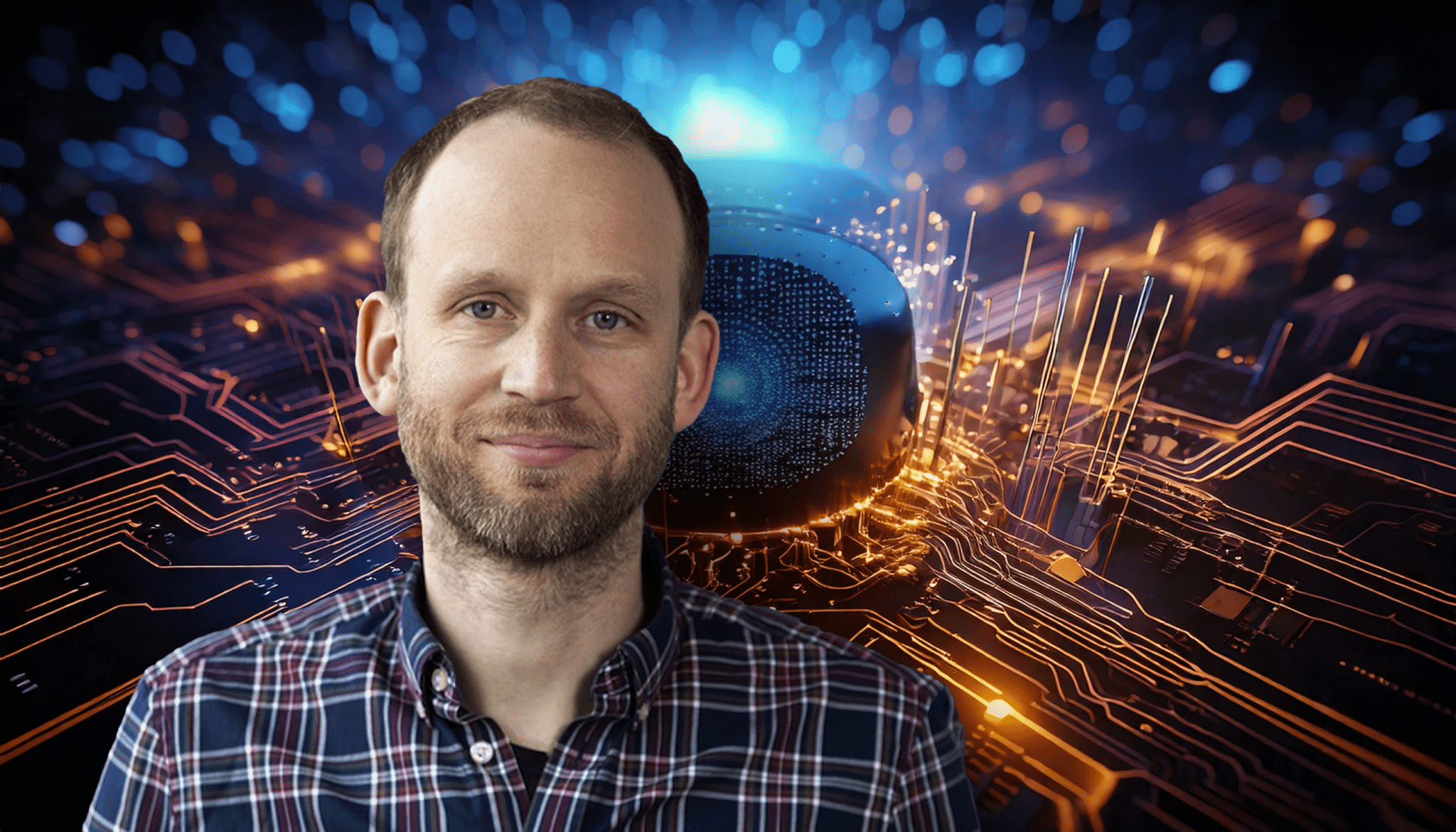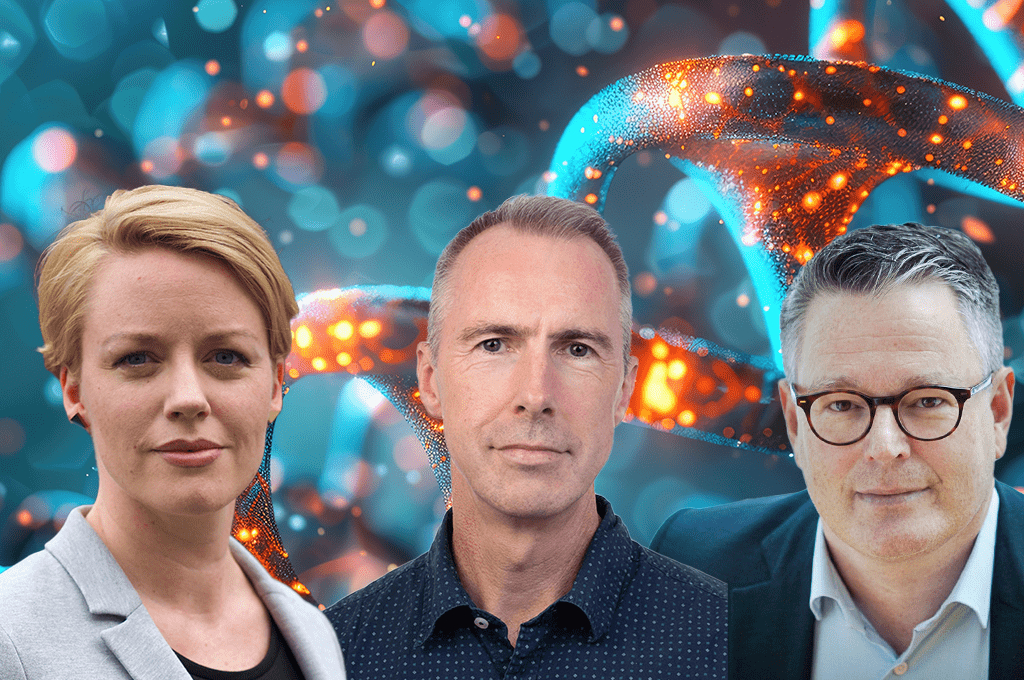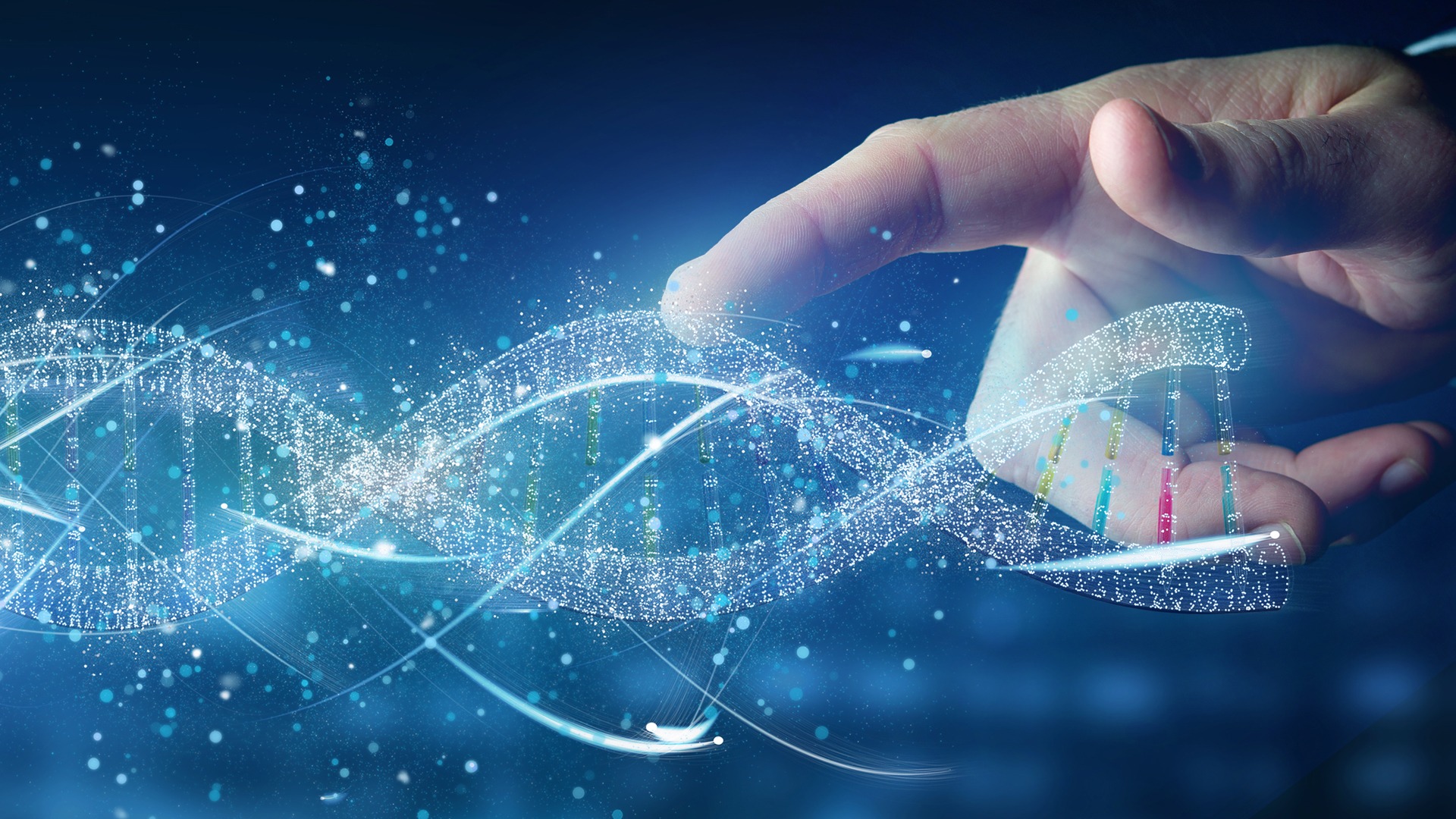New DDLS Fellow: Arian Lundberg
Learn more about our latest SciLifeLab & Wallenberg National Program for Data-Driven Life Science (DDLS) Fellow, Arian Lunberg (KTH), and his passion for precision medicine and prostate cancer research in this week’s Q&A-style article. Arian joined the DDLS Precision medicine and Diagnostics research area in November 2024.
Arian’s academic journey has taken him across disciplines and continents, but precision medicine has always been at the core. He holds two master’s degrees, one in Bioinformatics from Lund University and another in Computational Biophysics and Biochemistry from Stockholm University. Arian has always been curious about cancer, which led him to pursue a PhD in Medical Bioinformatics at Karolinska Institutet, focusing on breast cancer and biomarker discovery. After that, he packed his bags and moved to the U.S. for postdoctoral research at Stanford University and the University of California at San Francisco, where he focused on metastatic prostate cancer, leading multi-omics studies on the largest matched omics cohort of patients with metastatic castration-resistant prostate cancer tumors, the lethal form of the disease, in the U.S.
But Arian wanted to push his research closer to clinical applications, so he moved to the UK to work as a senior postdoc at the Institute of Cancer Research and Royal Marsden Hospital in London. There, he conducted translational cancer research and worked closely with clinicians to bridge omics research with real-world patient outcomes. Now, he’s back in Sweden, building his own lab at KTH/SciLifeLab in Stockholm, where the team continues to tackle prostate cancer with a strong emphasis on the tumor microbiome, inflammation, and computational approaches to precision oncology.
How do you think your expertise can contribute to the program?
I’ve spent the past 15 years in precision medicine and cancer research, always drawn to the challenge of making sense of complex biological data and translating it into something meaningful for patients. My expertise lies in bioinformatics, multi-omics and data integration, with a strong focus on prostate cancer. But beyond the technical skills, what I bring is a mindset shaped by working across different research cultures, from basic science labs to large clinical and translational teams. One of the most important lessons I’ve learned is that impactful science doesn’t happen in silos. My experience has taught me how to bridge different disciplines, making connections between computational biology, experimental research, and clinical applications. I believe that’s where I can contribute the most, helping to integrate diverse data types and perspectives, ensuring that discoveries move beyond just being “interesting” and actually reach the point where they can influence patient care. At the heart of this, I see my role as not just analyzing data, but helping to shape a research environment where bioinformatics, biology, and medicine work together seamlessly. Whether it’s developing new analytical frameworks, collaborating across sectors, or mentoring the next generation of researchers in this space. I’m excited about the opportunity to contribute to this program and push the boundaries of what precision medicine can achieve.
Shortly describe your research in an easy to understand way.
My research focuses on precision medicine and prostate cancer, particularly metastatic castration-resistant prostate cancer, the deadliest form of the disease. We combine multi-omics approaches by integrating genomics, transcriptomics, and epigenetics with machine learning and experimental work, to uncover how these tumors evolve, develop resistance to treatment, and adapt to their environment. A major part of our work is figuring out how tumor-promoting inflammation, driven by the microbiome and immune system, fuels cancer progression. At KTH/SciLifeLab, my lab is working to piece together these complex interactions to identify new biomarkers and therapeutic strategies that could make a real difference for patients.
How do you think the program and interactions with the other DDLS-Fellows will benefit you?
The DDLS program has been incredibly enriching for me. It has provided a dynamic, collaborative environment, connecting me with a group of talented experts across diverse fields. For me, as a DDLS fellow focusing on precision medicine and diagnostics, working alongside fellows from other disciplines has been invaluable. Whether collaborating with microbiologists, immunologists, or epidemiologists, these interactions have broadened my perspective on cancer research, giving me new insights into my own work. Additionally, events like PALS have been a great opportunity to engage with individuals from outside the cancer and life sciences fields. Their perspectives are incredibly valuable, adding a new dimension to the work we do here and helping me see my research from angles I may not have considered before.
Name one thing that people generally do not know about you.
One thing people might not know about me is that I’m incredibly persistent. Once I set my mind to something, it’s very hard for me to give up until I reach my goal. This trait has been incredibly helpful in my research, where setbacks are inevitable, but I always bounce back stronger. I think it’s one of the reasons why I enjoy being in the research environment. It’s all about perseverance, learning from failures, and pushing forward toward new discoveries.
Where do you see yourself in five years regarding the DDLS aspect?
In five years, I see myself leading a motivated, diverse, and passionate team here at KTH/SciLifeLab, a team that’s not just skilled, but also truly driven to make an impact. I want to build a collaborative environment where each member is empowered to bring their unique expertise to the table, whether that’s in precision medicine, cancer research, or computational biology. Together, we’ll tackle the toughest translational cancer research questions, while keeping patients at the heart of everything we do. It’s about more than just research; it’s about making a real difference in the lives of those suffering from cancer. That’s the vision I have for my team, and I want to foster a lab where everyone is excited to contribute to this mission.
In one word, describe how you feel about becoming a DDLS-Fellow.
Humbled
